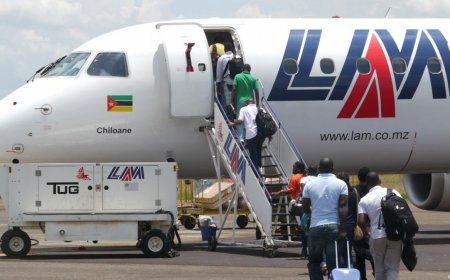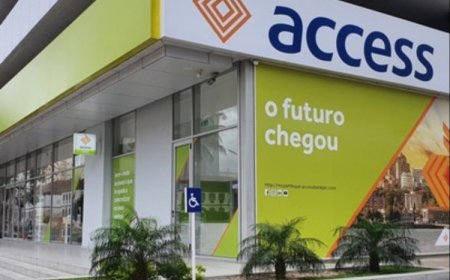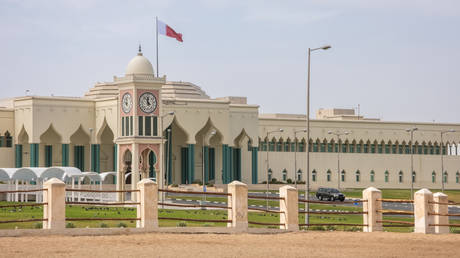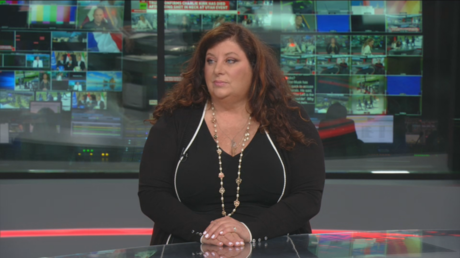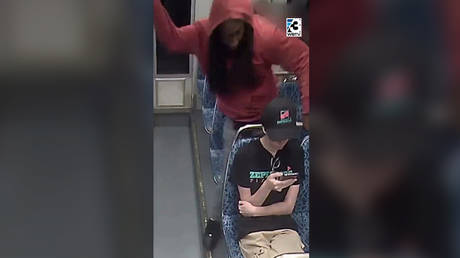World Bank approves 250 million dollars for urban transport
The World Bank has approved a grant equivalent to 250 million US dollars to improve mobility and accessibility in the Maputo Metropolitan Area (AMM), a region that includes the cities of Maputo and Matola, and the neighbouring districts of Boane and Marracuene.
“The funds will be used for the construction of the first Bus Rapid Transit (BRT) system and associated facilities in the AMM. The funds will also be applied to improving roads and access routes to low-income neighborhoods, including the construction of non-motorized circulation infrastructure, as well as facilitating mobility for vulnerable groups”, says a World Bank release, issued on Wednesday.
The statement quotes the Bank’s director for Mozambique, Idah Pswarayi-Riddihough, expressing satisfaction that another milestone has been reached in improving people's lives.
“This operation will ultimately contribute to expanding economic opportunity and social inclusion. Poor access to jobs and services is a major constraint to urban economic productivity, hindering the city's potential for competitiveness, and is a critical element of social exclusion underlying urban poverty”, said Riddihough.
The population of the AMM has grown rapidly and is expected to reach nearly four million by 2035, which poses an added challenge to mobility, according to the release.
“This project offers an integrated approach to address urban mobility challenges in the MMA and supports the long-term goals of making the Metropolitan Area more competitive, greener and resilient”, says the Bank’s Senior Urban Transportation Specialist and project team leader Fatima Arroyo, quoted in the release.
“The AMM is now at a turning point to fulfill its potential to transform the country. We hope that this operation will ultimately contribute to promote changes in the way the city is growing from a congested, car-oriented city to a green, resilient, people-oriented city where transport and public are at the center of the metropolitan vision”, added Arroyo.
The project will also support the institutional and regulatory strengthening of urban transport throughout Mozambique, as well as capacity building of public sector transport staff, and professionalization of existing formal and informal public transport operators.
According to the release, the project has integrated innovative approaches to catalyze structural changes in the sector, including a focus on the digitalization of the sector, integration of women and people in vulnerable situations, as well as the integration of private sector participation in a long-term program to formalize public transport.
A second Wednesday release announced that the bank has also approved a 400 million dollar grant in order to support a project named Safe Roads for Better Economic Integration in Mozambique. This project, says the release, aims to improve the connectivity, safety and climate resilience of the road system, and develop social inclusion.
A total of 508 kilometers of selected priority sections of the main north-south highway (EN1) will benefit from rehabilitation.
These are the Metoro - Pemba section (94 kilometers) in the northern province of Cabo Delgado; Gorongosa - Caia Lot 1 (84 kilometers) Gorongosa - Caia Lot 2 (84 kilometers-168 kilometers) and Inchope - Gorongosa (70 kilometers), all in the central province of Sofala.
The road rehabilitation includes the Chimuara-Nicoadala Lot 1 (88 kilometers) and Chimuara-Nicoadala Lot 2 (88 kilometers-176 kilometers) sections in the central province of Zambezia.
Quoting Pswarayi-Riddihough, the release says that roads are vital for economic activity, growth, social inclusion and poverty reduction.
“This operation is fundamental to revitalize the connectivity of Mozambique's North-South roads and thus integrate the fragile central-northern provinces with the rest of the country by rehabilitating priority road sections of the N1 North-South corridor”, added Riddihough,.
Most of the project funds will be used in the design and rehabilitation of safer and more climate resilient roads, which will include road improvements and maintenance.
(AIM)


